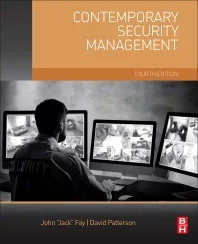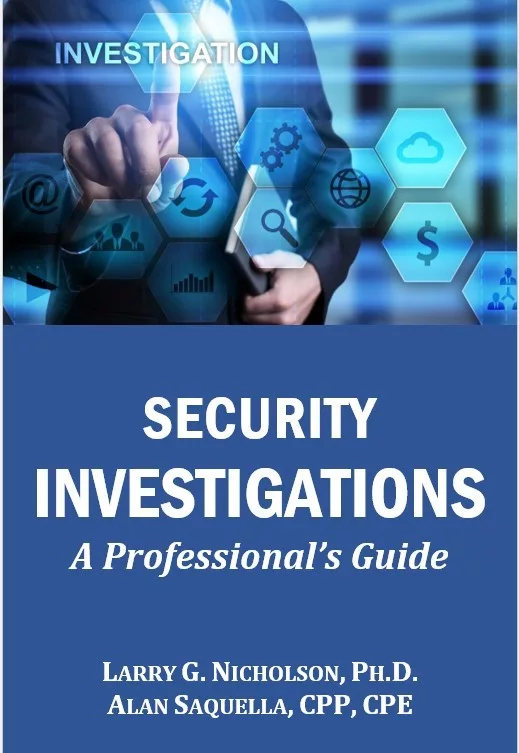Safeguarding Corporate Reputation
Corporate reputation is increasingly able to either generate or rapidly destroy shareholder value, concludes a report by The Conference Board. The report, Reputation Risk: A Corporate Governance Perspective, provides recommendations on how corporate boards can ensure companies develop a robust reputational risk management process integrated within their enterprise-wide risk management (ERM) program.
“Despite a recent surge in research on the topic, corporate reputation remains a highly disjointed field of study,” said Matteo Tonello, senior research associate at The Conference Board Governance Center and author of the report. “There is still very little guidance on the oversight function of the board in protecting and enhancing this corporate asset.”
To fill this gap, The Conference Board held a Corporate/Investor Summit on reputation risk governance in March 2007, in Washington, DC. Moderated by Dr. Carolyn Brancato, Director of The Conference Board Governance Center, the Summit was sponsored by KPMG LLP and KPMG’s Audit Committee Institute and held in conjunction with the Council of Institutional Investors’ annual spring meeting. Summit delegates included representatives from corporations, investors, and professional institutions (see complete list at the end of this release). The group reached consensus on a set of principles and guidelines in reputation risk governance. “This is an important study that thoughtfully explores an increasingly fragile ingredient of success, i.e., reputation, and how it can shape a company’s risk content and processes,” said John Farrell, National Lead Partner, Enterprise Risk Management, at KPMG LLP.
“The report increases the awareness of reputation risk as a corporate governance matter and offers guidance on how corporate boards can approach their fiduciary responsibilities in this area,” Tonello adds. “Corporate governance is the system of checks and balances instituted by the board of directors to ensure that an organization is suited to meet its business objectives, not the interest of insiders. Since corporate reputation is the
perception of the firm by a variety of stakeholders, board members should consider having an organizational program in place to oversee any material event that may affect stakeholder relations so as to ensure that such events do not compromise the company’s ability to achieve its long-term goals.”
Key recommendations
The report makes the following recommendations for corporate boards:
?? Boards of directors should reach a common understanding of the concept of corporate reputation and tie its discussion to a comprehensive analysis of the firm’s stakeholder base. Corporate reputation oversight represents a formidable strategic opportunity to strengthen stakeholders’ relations that pertain to the company’s long-term business objectives.
?? Directors should become familiar with management’s rationale for prioritizing stakeholder relations and be persuaded that the selected relations are instrumental to achieving the firm’s long-term objectives. In doing so, directors should be aware that executives and other insiders might attribute different importance to the same group of stakeholders, according to the degree of interactions they have experienced with such group or the potential private benefit they may derive from certain relations.
?? Boards should discuss and understand the nature of reputation risk as an effect of certain business operational incidents, not a separate and distinct category of uncertainties. Accordingly, directors should consider objecting to the establishment of a dedicated organizational platform to address reputation risk, as it would conflict with current risk management integration best practices and retard the development of a full-fledged enterprise risk management (ERM) program. Failing to embed reputation risk into ERM could lead to inefficiencies and disparities in the company’s response to risk events; in addition, it could undermine the firm’s ability to foster a cohesive culture of risk awareness.
?? Directors should oversee the design and implementation of a strategic, top-down, and holistic risk management program where all business events with potential consequences on the firm’s reputation capital are identified, measured vis-à-vis tolerance levels and appetite to risk, and addressed in a timely manner. Enterprise risk management enables the company to elevate relevant reputation issues to the board level, where they can be analyzed strategically and in relation to their possible impact on long-term shareholder value.
?? Boards of directors should consider adhering to The Conference Board Road Map to Risk Governance to embed reputation risk oversight into a comprehensive risk management program. Specifically, the board should ensure that such ERM phases as the risk portfolio compilation, assessment, and response strategy determination do not disregard potential effects of business risk events on reputation capital.
?? The board of directors should oversee the process adopted by senior executives to identify, categorize, and prioritize business uncertainties, even with respect to their reputation effects. Directors should ensure that prioritization criteria and other techniques used in compiling a risk portfolio comprise, among others, a set of reputation metrics. Specifically, the inclusion of a risk event in the portfolio should also be decided based on likelihood and impact of the event consequences on the company’s reputation capital.
?? The board should oversee the determination of a proper response strategy to each risk category affecting corporate reputation. Response strategies should be chosen, among other things, on the basis of a resource cost-benefit analysis. Directors should be skeptical of any attempt at restoring stakeholder
confidence exclusively through savvy communication tactics, and request that response strategies fully address underlying operational risks. In a well-designed ERM program, communication tactics and better disclosure should be seen as tools to corroborate and complete a business risk response strategy, not to replace it.
?? These recommendations are supplemented by references to a number of practical cases of corporate reputation failures and reputation risk management, including cases drawn from public source documents involving: Johnson & Johnson; Nike Inc.; Sony Corp.; Mattel Inc.; BP plc; Martha Stewart Living Omnimedia Inc.
Source: Reputation Risk: A Corporate Governance Perspective
by Matteo Tonello, LL.M., Ph.D.
Report No. 1412-07-WG
ABOUT THE CONFERENCE BOARD
Non-partisan and not-for-profit, The Conference Board is the world’s leading business membership and research organization. The Conference Board produces The Consumer Confidence Index and the Leading Economic Indicators for the U.S. and other major nations. These barometers can have a major impact on the financial markets. The Conference Board also produces a wide range of authoritative reports on corporate governance and ethics, human resources and diversity, executive compensation, outsourcing, profiting from a mature workforce, and corporate citizenship. Our conference and council programs bring together more than 12,000 senior executives each year to share insights and learn from each other. Visit The Conference Board website at www.conference-board.org.
ABOUT KPMG LLP
KPMG LLP, the audit, tax and advisory firm (www.us.kpmg.com), is the U.S. member firm of KPMG International. KPMG International’s member firms have 113,000 professionals, including more than 6,800 partners, in 148 countries. KPMG’s Enterprise Risk Management Program was named a leader in The Forrester Wave – Risk Consulting Services Q2 2007. To learn more, and receive a copy of the independent Forrester Report, contact John Farrell (johnmichaelfarrell@kpmg.com)
ABOUT THE CORPORATE/INVESTOR SUMMIT
Reputation Risk: A Corporate Governance Perspective reports on the Corporate/Investor Summit conducted by The Conference Board Governance Center in Washington, DC, in conjunction with the Council of Institutional Investors’ annual meeting, in March 2007. The Summit was sponsored by KPMG LLP and KPMG’s Audit Committee Institute.
Held under the direction of Dr. Carolyn K. Brancato, Director, The Conference Board’s Governance Center, The Corporate/Investor Summits convene some of the most distinguished representatives of the corporate and investment worlds to explore issues related to long-term investment and shareholder value creation.
Delegates to the March 2007 Corporate/Investor Summit on reputation risk governance included:
Lydia I. Beebe
Corporate Secretary & Chief Governance Officer
Chevron Corporation ‡
Caryn P. Bocchino
Senior Manager
KPMG’s Audit Committee Institute †
Carolyn Kay Brancato
Director, Governance Center & Directors’ Institute
The Conference Board, Inc.
Hye-Won Choi
Vice President & Associate General Counsel
TIAA-CREF †
Andrew Clearfield
President
Investment Initiatives LLC
Deborah Dacey
Director, Industries & Marketing
KPMG LLP †
George S. Dallas
Managing Director and Global Practice Leader, Governance Services
Standard & Poor’s ‡
Bryan Dumont
Senior Vice President
APCO Worldwide ‡
Robert G. Eccles
Co-founder and Managing Director
Perception Partners, Inc.
John Farrell
National Lead Partner, Enterprise Risk Management
KPMG LLP †
Peter J. Firestein
President
Global Strategic Communications, Inc.
Margaret M. Foran
Vice President, Corporate Governance & Secretary
Pfizer, Inc. †
Keith L. Johnson
Chairman
Reinhart Institutional Investor Services
Rosemary Kenney
Director, Corporate Governance
Pfizer, Inc. †
Richard H. Koppes
Of Counsel
Jones Day †
Barbara E. Mathews
Vice President, Associate General Counsel, Chief Governance Officer and Corporate Secretary
Southern California Edison ‡
Louis Ragusa
Executive Vice President, CEC Audit and Corporate Services
MetLife, Inc.
Prodyot Samanta
Director, Enterprise Risk Management
Standard and Poor’s ‡
Elizabeth R. Smith
Assistant Vice President, Corporate Governance
Moody’s Investor Service
Daniel Summerfield
Co-head of Responsible Investment
Universities Superannuation Scheme (USS) Ltd. ‡
Matteo Tonello
Senior Research Associate,
Governance Center & Directors’ Institute
The Conference Board, Inc.
Tina S. Van Dam
Former Associate Director,
Governance Center & Directors’ Institute
The Conference Board, Inc.
Mark Watson
Managing Director, Corporate Governance Specialist Team
Moody’s Investors Service
† Advisory Board Member
‡ Center Member
Looking for a reprint of this article?
From high-res PDFs to custom plaques, order your copy today!







